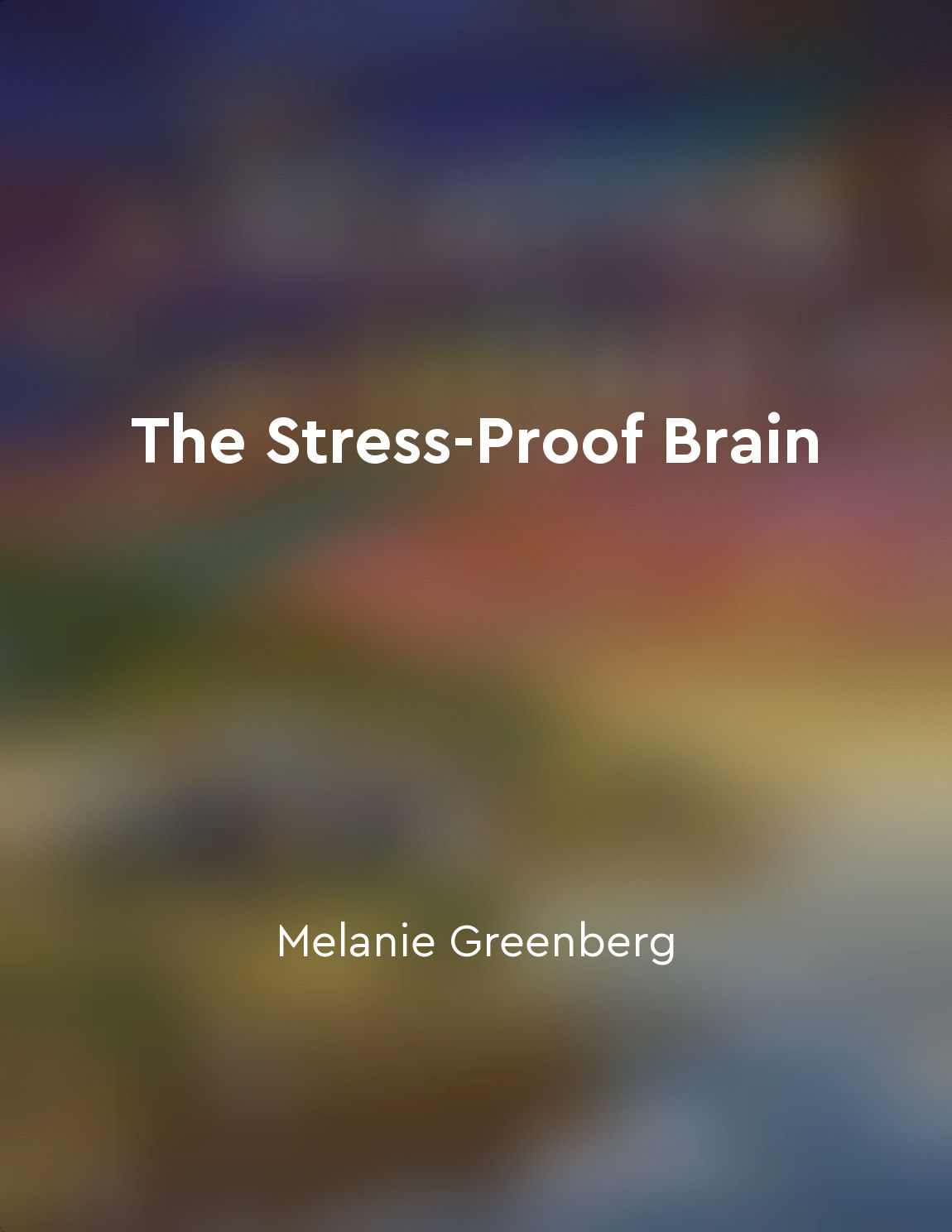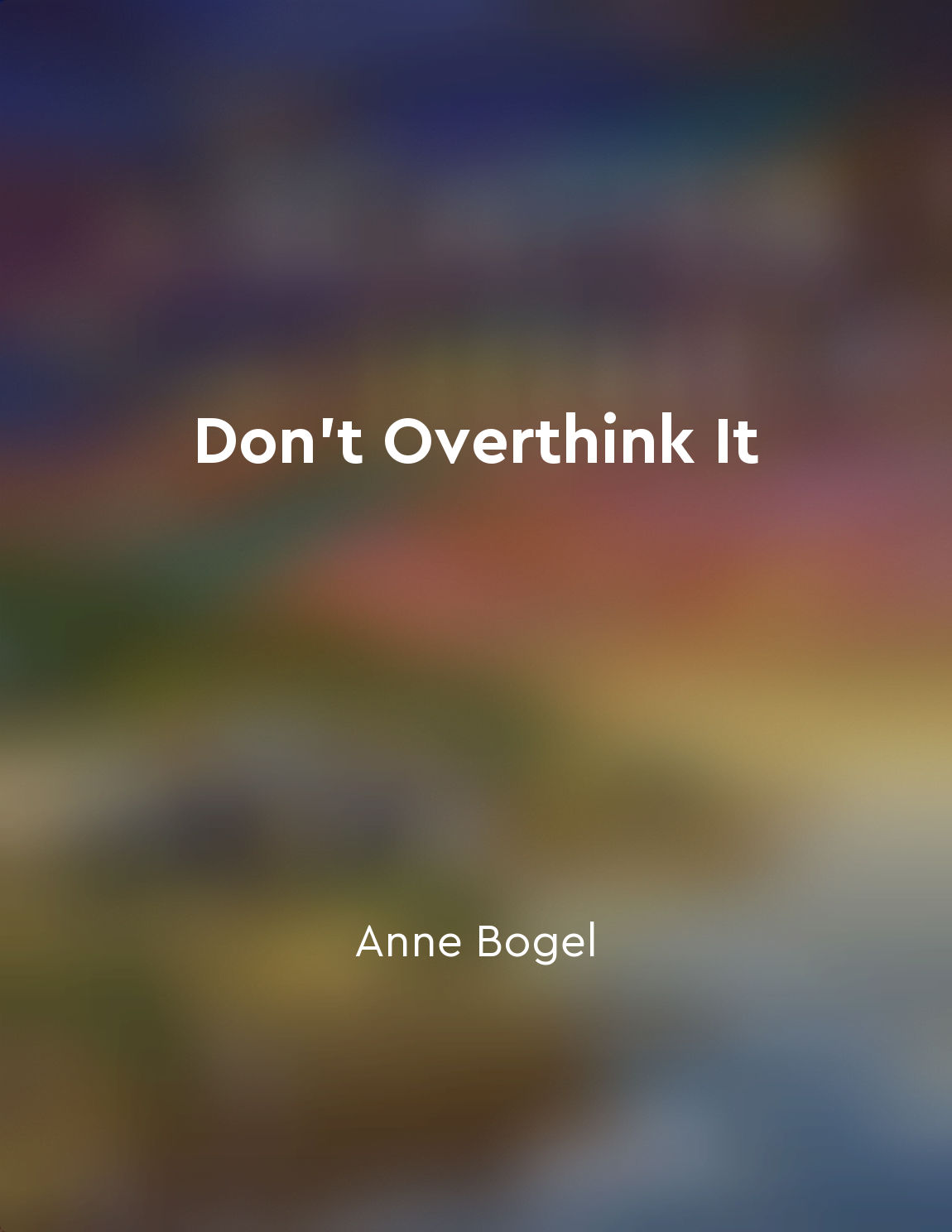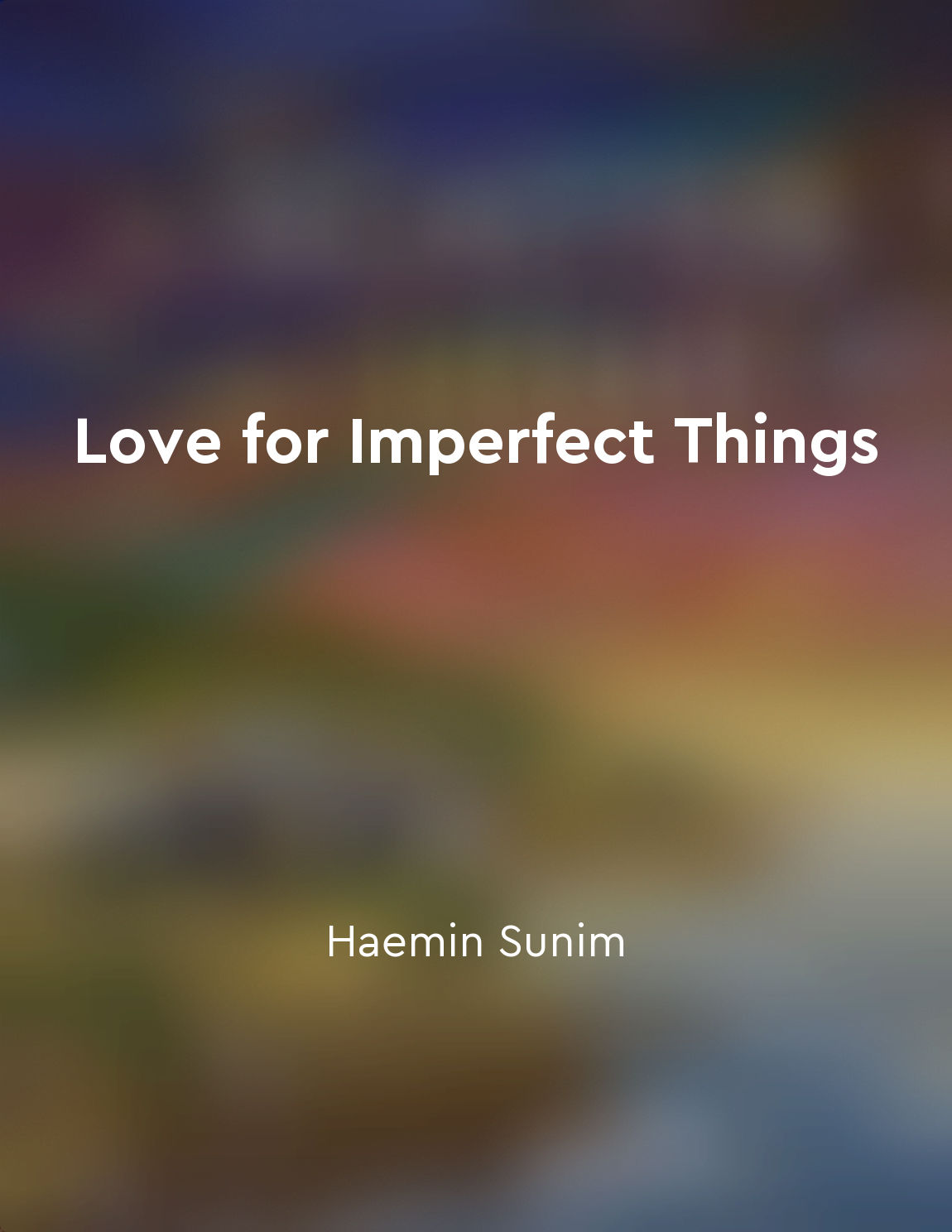Embracing imperfection from "summary" of The Mindfulness Workbook for OCD by Jon Hershfield,Tom Corboy
The idea of embracing imperfection is central to the practice of mindfulness. It involves accepting that life is inherently imperfect, and that trying to control or eliminate all imperfections is not only impossible but also detrimental to our well-being. By letting go of the need for perfection, we can free ourselves from the constant striving and self-criticism that often accompany OCD. When we embrace imperfection, we can begin to see our flaws and mistakes as opportunities for growth and learning rather than sources of shame or anxiety. We can adopt a more compassionate and forgiving attitude towards ourselves, recognizing that we are all human and prone to making mistakes. This shift in perspective can help us to become more resilient in the face of challenges and setbacks. It is important to remember that embracing imperfection does not mean giving up on our goals or settling for mediocrity. It simply means acknowledging that perfection is an unattainable ideal and that we are all works in progress. By letting go of our attachment to perfection, we can become more present in the moment and open ourselves up to new possibilities and experiences. Mindfulness can be a powerful tool for cultivating acceptance of imperfection. By bringing our attention to the present moment without judgment, we can learn to observe our thoughts and feelings with a sense of curiosity and compassion. This nonjudgmental awareness can help us to break free from the cycle of perfectionism and self-criticism that often fuels OCD.- Embracing imperfection is about learning to be kinder to ourselves and more accepting of the uncertainties and complexities of life. It is a practice that requires patience, courage, and a willingness to let go of our need for control. By embracing imperfection, we can create space for growth, self-discovery, and a deeper sense of peace and well-being in our lives.
Similar Posts
Get rid of clutter in your physical environment to create mental clarity
Clutter is not just physical stuff. It is old ideas, toxic relationships, and bad habits. Clutter is anything that does not sup...
Collaborate to enhance your ideas
When you have an idea, it's like a fish - a big fish swimming in the ocean. If you have a hook, you can catch that fish. But so...

Cultivating selfcompassion can ease stress and promote self-care
Self-compassion is a powerful tool for managing stress and promoting self-care. When we practice self-compassion, we are kind a...
Embrace change as a natural part of life
When we are able to accept change as a natural part of life, we open ourselves up to endless possibilities. Change is not somet...
Believe in your potential
The concept of believing in your potential is a fundamental principle that can transform your life. When you truly believe in y...

Small actions can lead to significant changes
Everyday choices, often overlooked, have the power to shape our lives in profound ways. A single decision—a morning routine, a ...

Fostering a sense of community provides a support system
Fostering a sense of community is crucial for our well-being. When we are part of a community, we feel connected to others, we ...

Prioritize mental wellness
Taking care of our mental well-being should be a top priority in our lives. In the hustle and bustle of daily life, it is easy ...
Develop healthy habits to support your focus
To achieve a state of peak focus, it is essential to cultivate healthy habits that support your mental clarity and concentratio...

Learn from mistakes
Mistakes are a natural part of life. We all make them, no matter how hard we try to avoid them. Sometimes, we make small mistak...

